The Golden Retriever is a medium to large sized breed of dog. This breed of dog is gentle and has an affectionate nature. The most obvious part of a Golden Retriever is the gorgeous golden color of the dog’s coat.
Contents
The Golden Retriever is likely the most common and popular breed of dog in the Western Countries. It is by far the most frequently registered breed. The Golden Retriever is a British breed created in the late 19th century.
For the Golden Retriever, it could take up to two years to finish growing to full size. The Golden Retriever is known to be a strong and muscular dog, with a very strong gait. Most Golden Retrievers will be very close to their adult height and weight by the time they are a year old. However, to reach full chest size they may need an extra year.
Birth
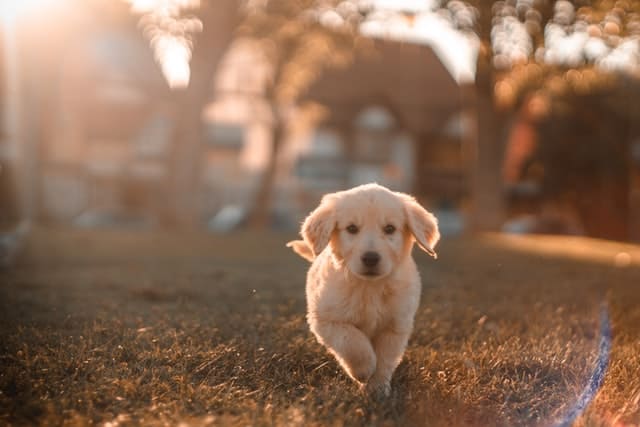
At birth, the average Golden Retriever puppy will weigh between 14 ounces and 1 pound. That same puppy will measure between 6.5 and 7+ inches when he or she is born. The length measurement is from the utt to the tip of the nose. There may be some that are longer and some that are shorter.
1 month to 2 Year Growth Chart
By 1 month your Golden Retriever will weigh between 3 and 5 pounds
By 2 months the weight jumps to between 10 and 15 pounds
3 months the weight averages 20 to 25 pounds
4 months will see the Golden Retriever weigh 25 to 30 pounds
5 months the Golden will average 35 to 40 pounds
As you can see, the Golden Retriever will gain an average of 5 pounds a month until they are 11 months. By the time they are 2 years old they will weigh between 65 to 75 pounds. There is a period of time between 11 and 12 months when they do not gain any weight. They stay between 60 and 70 pounds.
The previous chart is for the male Golden Retriever. The females average about 5 pounds less each month. When the female Golden Retriever is 2 years old, she will likely be at her top weight of 65 pounds.
If there are questions about the size that your Golden Retriever will be, you can discuss with your breeder these aspects. They would have the records that detail the weight of your Golden Retriever’s parents. Then he may be able to make a guess what the weight will be of your Golden Retriever. The breeder will also check the size of previous litters and be able to give you an estimate.
For many of us Golden Retriever owners, we look at the paws, if the paws seem to be too large for the body, then it is more than reasonable to believe that the dog is not done growing yet.
As far as the height that your Golden Retriever will get to, it is expected that the male Golden Retriever will get to about 23 to 24 inches. The female will remain slightly shorter at 21 ½ to 22 ½ inches.
Goldens will all go through similar development stages, it is best to remember that each Golden Retriever is unique and they will not all develop at the exact same rate. What you will be able to do when you keep an eye on your Golden’s growth is to be aware when they are not on track as is the norm.
In other words, if your Golden is gaining more than the average 5 pounds, or less than that. You can contact the veterinarian in regards to your concerns.
The answer to the question of “When do Golden Retrievers Stop Growing?” is not always that simple. The average Golden Retriever will be done growing by 18 months, it will take a little more time for their chests to fill in as they should be in relation to the rest of the body.
The puppy features, sort of like the baby face of your dog, will slowly disappear and become the adult features after the twelve week mark. There will obviously be different factors that make a difference in the growth rate of your Golden Retriever. Since not all dogs are exact copies of each other, the way they grow and change will depend on these factors.
Nutrition
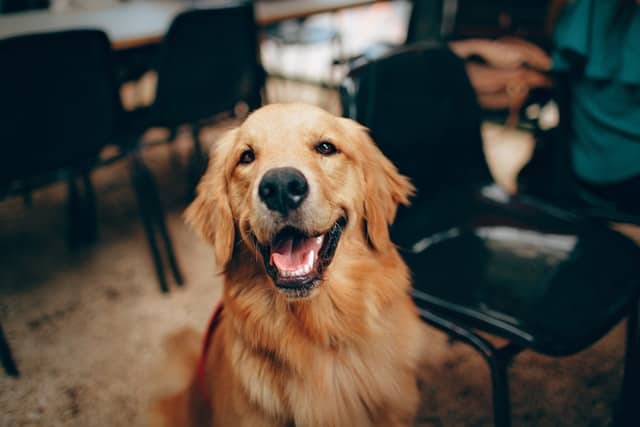
In the correct amount, with the proper nutrition your Golden Retriever’s diet will impact how they grow. So following the recommendations for amount of food to size of dog, will keep him or her on a healthy path. If the diet is not nutritious, or the dog is not being fed the correct amount, their growth rate will be behind and they will look skinnier than they should.
When the Golden is eating too much food, or not the proper food, maybe too much table food, too many treats, they will become obese.
Exercise
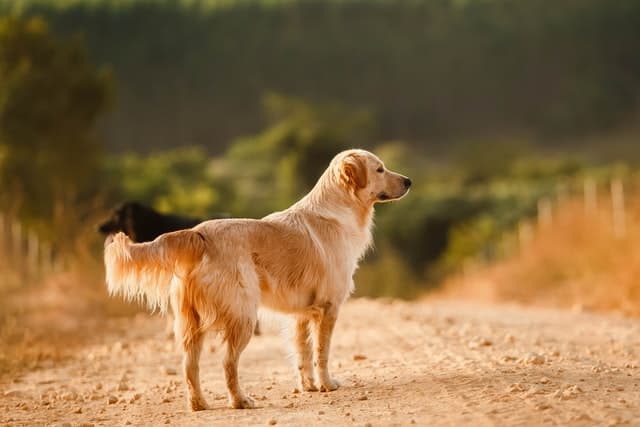
How much a dog exercises will also make a difference in their muscle growth, and their weight. All dogs should have a decent amount of physical activity. You should be prepared, Golden Retrievers are active dogs by nature. They love to run and play so it will not take much to convince your Golden to go for a walk or go outside to play fetch.
The activity will help their muscles grow the way they should. At the same time, it can be detrimental to the Golden if they use their muscles too much. If too much exercise begins at a young age, this can cause damage to the joints and muscles. The lesson to learn from this is that you should not play adult dog games with a puppy, they need the time to develop at the right pace, not quickly.
Genetics
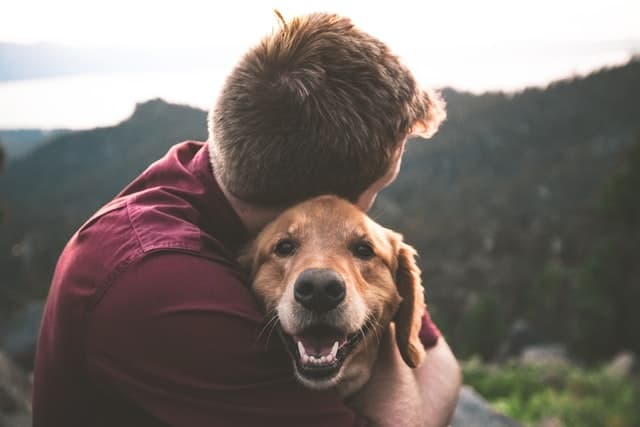
The genetics of your Golden Retriever cannot be changed. However, it is possible to keep the condition under control with the help of your veterinarian. Some genetic conditions will cause your Golden Retriever to be smaller than average.
There are many who will tell you that you do not have a purebred Golden Retriever if your dog is smaller, this is not true. As you can see, there are a few factors that have an impact on the growth.
Health

If your Golden Retriever has been sick over an extended period of time, this could affect the growth. Issues such as intestinal worms will impact the growth also, the worms steal the calories that the dog would normally be receiving.
This is why it is so important to be taking your Golden Retriever for regular check ups at the veterinarian's office. He will be able to determine if there are any underlying health issues that are affecting the growth of your Golden Retriever.
Neutering

Golden Retrievers that are neutered when they are younger do tend to grow taller. However, if you do decide to neuter your Golden Retriever, it could make the dog prone to irregular joint formation and may be at risk for certain forms of cancer.
Overfeeding and Underfeeding

You may want your Golden Retriever to be the perfect size. But, you must also remember that overfeeding him or her or even underfeeding the dog can lead to issues also. Two such issues would be elbow or hip dysplasia.
These two conditions can be detrimental and painful for the Golden Retriever. You should always feed your dog the recommended amount described on the package or instructions given by your veterinarian. This ensures that your Golden beauty is receiving the amount of nutrition he or she should be receiving.
Mentally

You might be wondering when your Golden Retriever is going to mature mentally. This will happen between two and three years old. However, again, all dogs are unique. They may not be ready to be trained yet, some may be ready earlier. Do not rush the situation, your Golden Retriever may be the best trained dog you know, but, if they are still naughty little ones, it will not be much of a difference.
What can be said with certain positivity is that your Golden beauty will start out very small but grow in spurts and rather quickly at times. Females are always slightly different from males. Both in size, when they stop growing and the mentality.
Whether male or female, do not try to rush the growth, this is more likely to cause damage to the Golden Retriever. The Golden Retriever, and all animals for that fact, should be allowed to develop and grow naturally.
In summary, be sure to feed your Golden Retriever a healthy and nutritious diet, avoid too many treats and table foods. When they are young do not rush physical activity. Too much too soon, as with everything in life can be harmful and cause further issues.
If you have questions or are concerned about your Golden Retriever’s growth, contact your veterinarian's office and make an appointment. Be sure to also continue routine checkups to keep your Golden Girl or boy healthy and happy for many years to come.



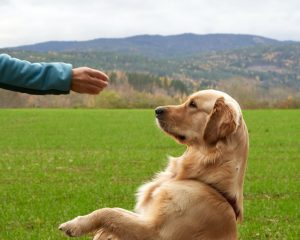

Leave a Reply
You must be logged in to post a comment.